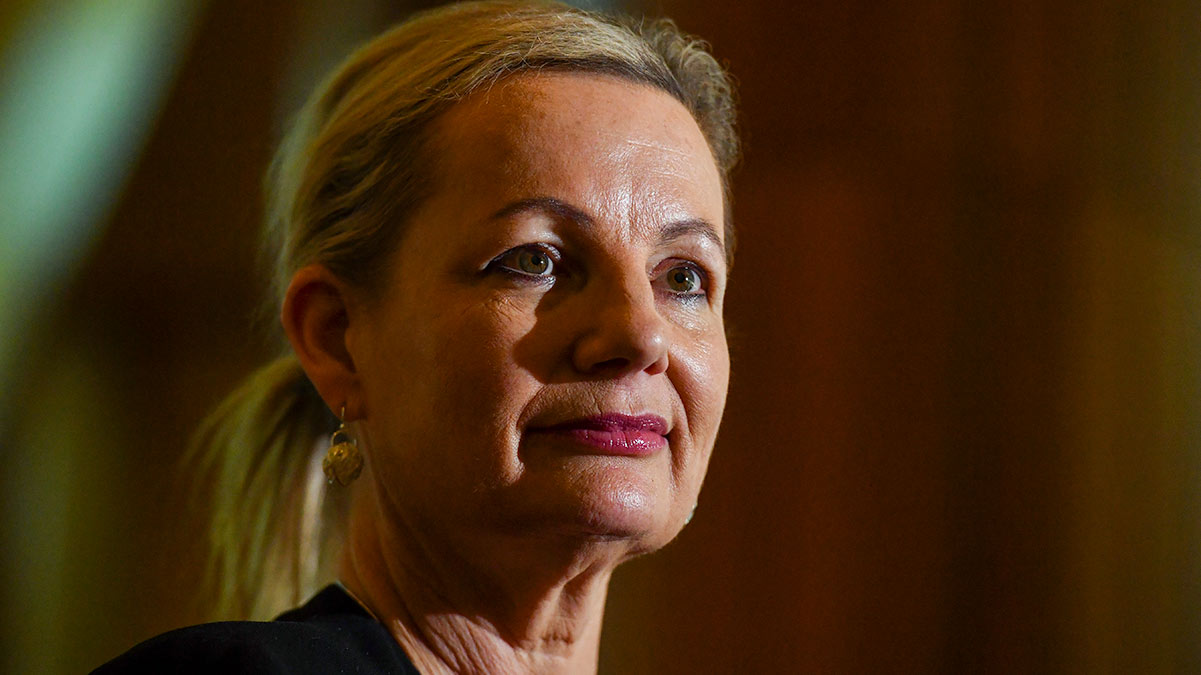Federal environment minister Sussan Ley will appeal a Federal Court order that she has a duty of care to protect young people from the impacts of greenhouse gas emissions.
In a statement made following Thursday’s judgement of the Federal Court, Ley said that she had “formed the view there are grounds on which to appeal” and that she “has now instructed the department to lodge a notice of appeal.”
The decision related to legal proceedings commenced by a group of high school students seeking to pre-empt the environment minister issuing approval to Whitehaven Coal to expand the Vickery Coal Mine.
The students successfully argued that the environment minister owed a duty of care to protect young people from the potential harms caused by carbon dioxide emissions when exercising her powers under the Environment Protection and Biodiversity Conservation Act.
In a judgement delivered on Thursday, Federal Court Justice Mordecai Bromberg declared that the minister had a “duty to take reasonable care” to “avoid causing personal injury or death” to Australians under 18 years of age that arose “from emissions of carbon dioxide into the Earth’s atmosphere.”
The declaration made by the Federal Court was relatively broad, applying to any ‘reasonably foreseeable’ risk that arose due to the release of carbon dioxide into the atmosphere, meaning it could apply to a broad range of predicted impacts of global warming – as well as extending to a wide range of industries involved in the extraction and use of fossil fuels.
As previously reported by RenewEconomy, Ley has rejected any assertion that climate change was not a relevant part of her portfolio responsibilities as the federal environment minister.
Ley has led attempts to weaken the protections contained within the EPBC Act, claiming that environmental groups were using the laws to levy “green lawfare” on fossil fuel projects.
In an apparent rejection of the Federal Court’s latest finding, Ley announced on Friday that she would appeal the decision. The appeal is likely to be heard by a full-bench of the Federal Court.
It could ultimately set up a High Court stoush over the responsibilities of the environment minister to consider the impacts of climate change when issuing environmental approvals to fossil fuel projects.
One of the students who sued the environment minister, Anjali Sharma, said that it was “embarrassing” that the minister was disputing the need to account for the impacts of greenhouse gas emissions on young people when approving fossil fuel projects.
“When I heard the news I found it funny and honestly pretty embarrassing that the Environment Minister plans to appeal,” Sharma said.
“As a person in power, her job should be to act for, not against, the young people of Australia. But instead of doing her job of safeguarding our future, she is prepared to spend public money fighting for her right to make climate change worse, harm the environment and risk the injury and death of Australian children.”
“It should be an unwritten rule that the government and every minister has a duty to safeguard the future, but instead it needed to be written into law, and now the Morrison government wants to erase that. A challenge favours the profits of coal companies above safeguarding the health of our environment and children and young people like me,” Sharma added.
Lawyer for the students, David Barnden, said the court’s declaration that a duty of care existed was sensible and questioned the logic of the environment minister appealing a ruling that she had a responsibility to protect young people from personal injury or death.
“We will vigorously defend the rights of children not to suffer injury or death from climate change at the hands of a government intent on approving new fossil fuel projects,” Barnden said.
“The duty is sensible. It is based on the principle not to harm your neighbour. A government that cares about all its citizens would be reluctant to appeal the duty. The duty places sensible restrictions on people in power to avoid the catastrophic harms of climate change. Ultimately, the decision that the minister intends to appeal, is one that looks after the welfare of vulnerable children.”










